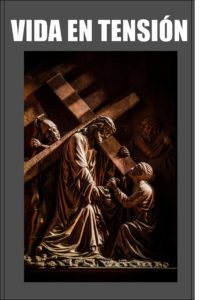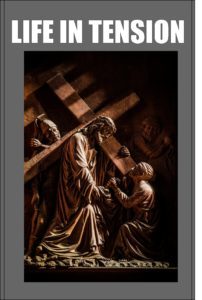Stephen W. Hiemstra's Blog, page 146
September 20, 2020
Oración de Alabanza

Por Stephen W. Hiemtra
Dios de Todas las Maravillas,
Los cielos declaran tu gloria y somos testigos de ellos. Nuestros ojos han visto y nuestros oídos han oído hablar del esplendor de tu creación.
Damos testimonio del amor que nos arrojaste cuando Jesús murió una muerte cruel en nuestro lugar y para nuestra salvación resucitó de entre los muertos.
¿Cómo pueden entonces nuestros labios estar en silencio?
Somos ciudadanos del cielo y peregrinos en esta tierra.
Enseñanos, Señor, a testigar en humildad a tu amor por nosotros; a abstener de las pasiones de esta vida que hace un guerra por nuestros almas; y compartir tu pasion por nuestras vidas y salvación con gentileza y respeto.
Si entonces sufriéramos, que sea por tu reino y tu rectitud y no por nuestro propio pecado.
En el poder de tu Espíritu Santo, ayúdanos a ser sal y luz.
En el precioso nombre de Jesús y por su gloria, Amén.
Oración de Alabanza
Ver también:
Gospel as Divine Template
Otras formas de participar en línea:
Sitio del autor: http://www.StephenWHiemstra.net,
Sitio del editor: http://www.T2Pneuma.com.
Boletín informativo: https://bit.ly/TestWater_2020
The post Oración de Alabanza appeared first on T2Pneuma.net.
September 18, 2020
Blessing Those that Persecute

Bless those who persecute you; bless and do not curse them.
(Rom 12:14)
By Stephen W. Hiemstra
Increasingly even in America, Christians find themselves the target of isolation, discrimination, persecution, and shootings. Few will forget the shooting of young, female, high school student in 1999 for professing faith in Jesus Christ, yet it happened again in 2015.1 During 2015 alone, a woman was jailed for publicly espousing Biblical views on marriage (Ellis and Payne 2015); a church was the site of a mass shooting (Wikipedia 2015a); and Christians were publicly beheaded by Islamic extremists. From the cross, “Jesus said, Father, forgive them, for they know not what they do.” (Luke 23:34) Like the crucifixion, persecution reminds us of who we are, who we belong to, and what we are about.
Who We Are
Persecution links our identity to Christ, as Jesus reminds us: “Rejoice and be glad, for your reward is great in heaven, for so they persecuted the prophets who were before you.” (Matt 5:12) Persecution for righteousness sake validates our faith and places us in the company of prophets.
Who We Belong To
Like the prophets, we are citizens of heaven (Phil 3:20) and undocumented aliens here on earth, as the Apostle Peter writes:
Once you were not a people, but now you are God’s people; once you had not received mercy, but now you have received mercy. Beloved, I urge you as sojourners and exiles to abstain from the passions of the flesh, which wage war against your soul. Keep your conduct among the Gentiles honorable, so that when they speak against you as evildoers, they may see your good deeds and glorify God on the day of visitation. (1 Pet 2:10-12)
Honorable conduct and good deeds mark us as Christians so as the body of Christ people should see something different about us, especially in persecution (Isa 51:1).
What We Are About
Persecution is part of the mix of trials that we should expect to experience (Rom 8:34-39), as the Apostle Peter writes:
Now who is there to harm you if you are zealous for what is good? But even if you should suffer for righteousness’ sake, you will be blessed. Have no fear of them, nor be troubled, but in your hearts honor Christ the Lord as holy, always being prepared to make a defense to anyone who asks you for a reason for the hope that is in you; yet do it with gentleness and respect, having a good conscience, so that, when you are slandered, those who revile your good behavior in Christ may be put to shame. For it is better to suffer for doing good, if that should be God’s will, than for doing evil. (1 Pet 3:13-17)
Are we zealous for what is good? Do we suffer for righteousness sake? Persecution trains us to lean on Christ—the source of our goodness and righteousness— and not our own abilities, prejudices, and strength.
When Jesus teaches us about being salt, it is attached to a warning: “You are the salt of the earth, but if salt has lost its taste, how shall its saltiness be restored? It is no longer good for anything except to be thrown out and trampled under people’s feet.” (Matt 5:13) If we lose touch with Christ, we are like an unplugged vacuum cleaner showing potential, but no power—trampling is a good analogy for the persecution of a church that has lost its way.
Footnotes
1 http://www.CassiereneBernall.org. Also: (Saslow, Kaplan, and Hoyt, 2015).
Blessing Those that Persecute
Also see:
Preface to a Life in Tension
Other ways to engage online:
Author site: http://www.StephenWHiemstra.net
Publisher site: http://www.T2Pneuma.com
Newsletter: http://bit.ly/Norm2020
The post Blessing Those that Persecute appeared first on T2Pneuma.net.
Bendigan a los que los Persiguen

Bendigan a los que los persiguen.
Bendigan, y no maldigan.
(Rom 12:14)
Por Stephen W. Hiemstra
Cada vez más en los Estados Unidos, los cristianos se encuentran el blanco del aislamiento, la discriminación, la persecución y los disparos. Pocos olvidarán los disparos de una joven estudiante de secundaria en 1999 por profesar fe en Jesucristo, pero se pasó otra vez en 20151. Solo en 2015, una mujer fue encarcelada por defender públicamente los puntos de vista bíblicos sobre el matrimonio (Ellis y Payne, 2015); una iglesia fue el sitio de un tiroteo masivo (Wikipedia 2015a); y los cristianos fueron decapitados públicamente por extremistas islámicos. De la cruz, “Jesús decía: Padre, perdónalos, porque no saben lo que hacen.” (Luke 23:34) Al igual que la crucifixión, la persecución nos recuerda quiénes somos, a quién pertenecemos y de qué se trata.
Quiénes Somos
La persecución vincula nuestra identidad con Cristo, como Jesús nos recuerda: “Regocíjense y alégrense, porque la recompensa de ustedes en los cielos es grande, porque así persiguieron a los profetas que fueron antes que ustedes.” (Matt 5:12) La persecución por causa de rectitud valida nuestra fe y nos coloca en compañía de los profetas.
A Quién Pertenecemos
Al igual como los profetas, somos ciudadanos del cielo (Phil 3:20) y extranjeros indocumentados aqui en la tierra, como el apóstol Pedro escribir:
Ustedes en otro tiempo no eran pueblo, pero ahora son el pueblo de Dios; no habían recibido misericordia, pero ahora han recibido misericordia. Amados, les ruego como a extranjeros y peregrinos, que se abstengan de las pasiones carnales que combaten contra el alma. Mantengan entre los Gentiles (incrédulos) una conducta irreprochable, a fin de que en aquello que les calumnian como malhechores, ellos, por razón de las buenas obras de ustedes, al considerarlas, glorifiquen a Dios en el día de la visitación (del juicio). (1 Pet 2:10–12)
La conducta honorable y las buenas acciones nos marcan como cristianos para que el cuerpo de Cristo la gente vea algo diferente sobre nosotros, especialmente en la persecución (Isaías 51: 1).
De Qué Se Trata
La persecución es parte de la mezcla de pruebas que debemos esperar experimentar (Rom 8: 34-39), como escribe el apóstol Pedro:
¿Y quién les podrá hacer daño a ustedes si demuestran tener celo por lo bueno? Pero aun si sufren por causa de la justicia, dichosos son. Y no tengan miedo por temor a ellos ni se turben, sino santifiquen a Cristo como Señor en sus corazones, estando siempre preparados para presentar defensa ante todo el que les demande razón de la esperanza que hay en ustedes. Pero háganlo con mansedumbre y reverencia, teniendo buena conciencia, para que en aquello en que son calumniados, sean avergonzados los que hablan mal de la buena conducta de ustedes en Cristo. Pues es mejor padecer por hacer el bien, si así es la voluntad de Dios, que por hacer el mal. (1 Pet 3:13–17)
¿Somos entusiasta de lo que es bueno? ¿Sufrimos por causa de rectitud?
La persecución nos entrena para apoyarnos en Cristo, la fuente de nuestra bondad y rectitud, y no de nuestras propias abilidades, prejuicios y fortaleza.
Cuando Jesús nos enseña acerca de ser sal, se adjunta a una advertencia: “Ustedes son la sal de la tierra; pero si la sal se ha vuelto insípida, ¿con qué se hará salada otra vez? Ya no sirve para nada, sino para ser echada fuera y pisoteada por los hombres.” (Matt 5:13) Si perdemos el toca con Cristo, somos como una aspiradora desconectada que muestra potencial, pero no tiene poder: pisotear es una buena analogía para la persecución de una iglesia que ha perdido el rumbo.
Notas
1 http://www.CassiereneBernall.org. Also: (Saslow, Kaplan, and Hoyt, 2015).
Bendigan a los que los Persiguen
Ver también:
Gospel as Divine Template
Otras formas de participar en línea:
Sitio del autor: http://www.StephenWHiemstra.net,
Sitio del editor: http://www.T2Pneuma.com.
Boletín informativo: http://bit.ly/Norm2020
The post Bendigan a los que los Persiguen appeared first on T2Pneuma.net.
September 16, 2020
A Delusional Moment

It’s helpful to break up change into a three-part movement: beginning, middle, and ending. You know the you are in the beginning of a change when you obsess about how things used to be. Clearly, the old ways are over, but you can’t help referring to them as if nothing had changed. The middle starts once you have have given up on looking back. The future remains hopelessly out of view and the past has been wretched away, Leaders don’t lead; most people sit around looking hopeless; and a search for ideas is about the only thing anyone talks about. The ending begins once leaders sort out how to cope with current problems and everyone races towards the light at the end of the tunnel. William Bridges refers to this three-part change as a transition.
A delusional moment occurs when caught in the middle of a transition when people prematurely believe that they have reached the ending of a transition and begin acting on that belief. It is not the same as an ending because the length of the middle phase is uncertain and multiple paths to the ending still exist. Think of a battle where the enemy still poses a mortal threat, but the leader of one army simply decides to stop fighting. The delusion itself poses a threat that cannot be ignored.
Unfortunately, we appear to be stuck in a delusional moment in the corona virus pandemic where individually and corporately people want to declare premature victory. The individual delusion is that life can return to norm without consequence—kids can go to school, young people can party, masks are uncomfortable and need not be worn. The corporate delusion is that a vaccine is just around the corner and will be available to everyone—no hard decisions required.
Several reasons can be given for the reality and threat posed by this delusion. The first is probably the most important —the corona virus is an invisible threat and the costs of taking precautions are real. Real jobs have been lost; real disruptions to life have been suffered. Yet, many people still do not know someone who has been sick or died. Television fatalities seem unreal and many people no longer watch the news or read a newspaper. As a consequence, the lives lost are heard about second-hand, often through social media, which itself has a fake news feel to it.
The second reason why this delusion is a real threat is that the heightened vigilance required to take precautions is exhausting. Myself, even though I am a writer and need not go out in public often, my public excursions are important to maintaining my own sanity. The idea that “no man is an island” to themselves is not just a literary illusion. We need each other to retain balance in our lives. Holocaust survivor, Viktor Frankl, observed that the stress of imprisonment was too much for camp internees and they sometimes committed suicide by attempting to escape—a variation on the suicide by police motif.
The third reason why this delusion is a real threat is that it sets us up for a second and third and fourth wave of infections. The second wave of the Spanish flu in 1918 killed many more people than the first and its was aided by bad political action. Governments denied the threat posed by the flu because of the First World War being fought at the time. Today, denial has political legs because of the U.S. Presidential election—who gets elected and not elected really does matter and competence in pandemic management is a real issue.
The Good News is that we are not alone. Christ died for our sins proving that God loves us and will never leave us alone. We do need need to succumb to the delusions of our day, as the Apostle Paul wrote:
But in all these things we overwhelmingly conquer through Him who loved us. For I am convinced that neither death, nor life, nor angels, nor principalities, nor things present, nor things to come, nor powers, nor height, nor depth, nor any other created thing, shall be able to separate us from the love of God, which is in Christ Jesus our Lord. (Rom 8:37-39)
My most frequent prayer is: Lord, why did you bring me to this time and place? What do you want me to learn? Some blessings come to us wrapped in an enigma.
References
Bridge, William. 2003. Managing Transitions: Making the Most of Change. Cambridge: Da Capo Press.
Frankl, Viktor E. 2008. Man’s Search for Meaning: A Classic Tribute to Hope from the Holocaust (Orig Pub 1946).[1] Translated by Ilse Lasch. London: Rider.
A Delusional Moment
Also see:
Water Cooler Observations, June 24, 2020
Interview about the Corona Life in English and Spanish with Stephen W. Hiemstra, April 24, 2020
Managing Change
Believer’s Prayer
Other ways to engage online:
Author site: http://www.StephenWHiemstra.net
Publisher site: http://www.T2Pneuma.com.
Newsletter: http://bit.ly/Norm2020
A
The post A Delusional Moment appeared first on T2Pneuma.net.
September 15, 2020
Gabriel Models a Father’s Virtue

Stephen Gabriel. 2011. Speaking to the Heart: A Father’s Guide to Growth in Virtue. Falls Church: Moorings Press.
Reviewed by Stephen W. Hiemstra
Virtue. That to which we hold ourselves accountable to. Or not. If your forehead were a billboard, what objectives would be written there? Stephen Gabriel’s book, Speaking to the Heart, is a book that I wish that I might have written at a younger age.
Speaking to the Heart is a book for fathers written by a father (11). Gabriel’s focus on virtues arises from the desire to be an intentional father who can assist his children in navigating the turbulence of life (12). For those of us uncomfortable with the subject of virtues, Gabriel advises—pay attention to your discomfort because it points in the direction of wisdom (14).
The book is organized around 20 virtues starting with the theological virtues of faith, hope, and love (charity). These 20 chapters are introduced with an introduction and followed with a conclusion. Each of the 20 chapters begins with a scripture passage and a famous quote. The virtue is then defined in a single page. This definition is then followed by a two page discussion entitled: “Considerations for Growth in the Virtue of XXX”.
Chapter 7, for example, focuses on temperance. The scripture passage is 1 Corinthians 9:25-27 which begins: “All the fighters at the games go into strict training…” He then cites Robert Burton: “Temperance is a bridle of gold.” Gabriel writes: “Temperance is evidenced by a sense of moderation and restraint in the exercise of our appetites.” First among the considerations for growth cited is: “I reflect on how I seek my happiness and fulfillment”. Another gem is: “I am more attentive to the people I am with than to the food and drink.”
Gabriel’s Speaking to the Heart oozes authenticity. What gives the book authenticity is not the author’s professional background, expertise in ethics, or ability to turn a phrase. Gabriel is not an obvious candidate to take up the pen here. Gabriel’s authenticity arises because he promises publically to model virtue as a father and outlines what that looks like. In a postmodern world devoid of adults, that takes guts. You want to be a good parent? Model virtue.
Gabriel Models a Father’s Virtue
Also see:
Nouwen: Make Space for Self, Others, and God
Vanhoozer: How Do We Understand the Bible? Part 1
Books, Films, and Ministry
Other ways to engage online:
Author site: http://www.StephenWHiemstra.net
Publisher site: http://www.T2Pneuma.com
Newsletter: http://bit.ly/Norm2020
The post Gabriel Models a Father’s Virtue appeared first on T2Pneuma.net.
September 14, 2020
Christian Paradox: Monday Monologues (podcast) September 14, 2020
 Stephen W. Hiemstra 2020 (Ken Burtram Photography)
Stephen W. Hiemstra 2020 (Ken Burtram Photography)By Stephen W. Hiemstra
This morning I will share a prayer and reflect on Christian Paradox. After listening, please click here to take a brief listener survey (10 questions).
To listen, click on this link.
Hear the words; Walk the steps; Experience the joy!
Christian Paradox: Monday Monologues (podcast) September 14, 2020
Also see:
Monday Monologue On March 26, 2018
Other ways to engage online:
Author site: http://www.StephenWHiemstra.net,
Publisher site: http://www.T2Pneuma.com.
Newsletter: http://bit.ly/Norm2020
The post Christian Paradox: Monday Monologues (podcast) September 14, 2020 appeared first on T2Pneuma.net.
September 13, 2020
Rodney’s Prayer

By Stephen W. HIemtra
Loving Father,
We give thanks for the life and death of Jesus who lived a humble life and bore our sins on the cross.
Help us to practice humbleness and hospitality with all people.
Help us to put on Christ’s righteousness and defend your honor, not ours.
Help us to pay our bills and our taxes, to turn the other cheek, to treat our enemies with love and respect, and to judge the actions, not the intensions, of those around us.
In all we do, help us to practice racial, ethnic, class, and gender equality.
In the power of your Holy Spirit, may conflict and bickering and gossip end with us.
In Jesus’ name, Amen.
Rodney’s Prayer
Also see:
Believer’s Prayer
Other ways to engage online:
Author site: http://www.StephenWHiemstra.net
Publisher site: http://www.T2Pneuma.com.
Newsletter: http://bit.ly/Norm2020
The post Rodney’s Prayer appeared first on T2Pneuma.net.
Oración de Rodney

Por Stephen W. Hiemstra
Padre Amoroso,
Damos gracia por la vida y muerte de Jesús quien vivió una vida humilde y llevó nuestros pecados en la cruz.
Ayúdanos a practicar humildad y hospitalidad con todas las personas.
Ayúdanos a ponernos en la rectitud de Cristo y defender tu honor, no el nuestro.
Ayúdanos a pagar nuestras cuentas y nuestros impuestos, poner la otra mejilla, tratar a nuestros enemigos con amor y respeto, y juzgar las acciones, no las intenciones, de quienes nos rodean.
En todo lo que hacemos, ayúdanos a practicar la igualdad racial, étnica, de clase y de género.
En el poder de su Espíritu Santo, que el conflicto, las disputas y los chismes terminen con nosotros.
En el nombre de Jesús, Amén.
Oración de Rodney
Ver también:
Gospel as Divine Template
Otras formas de participar en línea:
Sitio del autor: http://www.StephenWHiemstra.net,
Sitio del editor: http://www.T2Pneuma.com.
Boletín informativo: http://bit.ly/Norm2020
The post Oración de Rodney appeared first on T2Pneuma.net.
September 11, 2020
Christian Paradox

He himself bore our sins in his body on the tree,
that we might die to sin and live to righteousness.
By his wounds you have been healed.
(1 Pet 2:24)
By Stephen W. Hiemstra
Jesus teaches us to practice humility while pursuing righteousness even if we suffer shame, persecution, and death, as he did on the cross. Because death is the penalty for sin (Gen 3:3), Jesus’ righteous death on the cross allowed him to pay the penalty of our sin (1 Pet 2:24; 1 Cor 15:3) and his resurrection identified him as the son of God. This linking of sin to the penalty of death is critical to understanding Christ’s atoning work on the cross.
Jesus referred to himself as the Son of Man. Out of 189 verses in the Bible that use this term, 89 are found in Ezekiel, which refer to the prophet himself. The term in Hebrew literally means “son of Adam” (Ezek 2:1). In the more famous passage in Daniel 7:13, the Hebrew expression is the more familiar “son of man.”
Christ’s atoning death runs against our usual assumption that our debt for sin is, not against God, but against our neighbor. For example, discrimination, a form of persecution against our neighbor, results in tensions over racial, ethnic, class, and gender equality, as the Apostle Paul taught:
For as many of you as were baptized into Christ have put on Christ. There is neither Jew nor Greek [racial and ethnic equality], there is neither slave nor free [economic equality], there is no male and female [gender equality], for you are all one in Christ Jesus. (Gal 3:27-28)
Being one in Christ means that we model our lives after both Christ’s humble life and death so that humility replaces pride, discrimination, and persecution in our own lives, as evidenced in our treatment of others.
Modeling humility, Jesus offers many alternatives to violence in dealing with persecution, including:
1. Do not resist the one who is evil. But if anyone slaps you on the right cheek, turn to him the other also (Matt 5:39)
2. Love your enemies and pray for those who persecute you (Matt 5:44).
3. And if anyone forces you to go one mile, go with him two miles. (Matt 5:41)
4. Judge not, that you be not judged. (Matt 7:1)
5. …render to Caesar the things that are Caesar’s, and to God the things that are God’s. (Matt 22:21)
Refusing to defend oneself (one’s honor) could lead to perilous outcomes in a first century legal context because one was expected to offer one’s own defense, but it is absolutely necessary if persecution is to become a ministry opportunity, as we are told:
But before all this they will lay their hands on you and persecute you, delivering you up to the synagogues and prisons, and you will be brought before kings and governors for my name’s sake. This will be your opportunity to bear witness. (Luke 21:12–13)
We see this principle illustrated firsthand when Stephen refused to offer his own defense before the Sanhedrin and chose instead to defend Christ (Acts 7).
Stephen was the first among many Christian martyrs (Foxe 2001, 10), but other early Christians risked their lives in living testimony through service, as during a plague in Alexandria in the third century Christians refused to abandon the city and remained to care for the sick. A recent example of such fearless service was seen among Christian doctors working during the Ebola outbreak in West Africa. Less so with the AIDS epidemic (Kinnaman and Lyons 2007, 110).
A life of fearless service is possible because in Christ’s resurrection life follows death—the origin of Christian paradox.
References
Foxe, John and Harold J. Chadwick. 2001. The New Foxes’ Book of Martyrs (Orig Pub 1563). Gainsville, FL: Bridge-Logos Publishers.
Kinnaman, David with Gabe Lyons. 2007. UnChristian: What a New Generation Really Thinks About Christianity…and Why It Matters. Grand Rapids: BakerBooks.
Neyrey, Jerome H. 1998. Honor and Shame in the Gospel of Matthew. Louisville: Westminster John Knox Press.
Christian Paradox
Also see:
Preface to a Life in Tension
Other ways to engage online:
Author site: http://www.StephenWHiemstra.net
Publisher site: http://www.T2Pneuma.com
Newsletter: http://bit.ly/Norm2020
The post Christian Paradox appeared first on T2Pneuma.net.
Paradoja Cristiana

El mismo llevó (cargó) nuestros pecados en su cuerpo sobre la cruz,
a fin de que muramos al pecado y vivamos a la justicia,
porque por sus heridas fueron ustedes sanados.
(1 Pet 2:24)
Por Stephen W. Hiemstra
Jesús nos enseña a practicar la humildad mientras buscamos rectitud aúnque si sufrimos vergüenza, persecución, y muerte., como lo hizo en la cruz. Debido a que la muerte es la pena por pecado (Gen 3:3), la muerte recta de Jesús en la cruz le permitió a pagar la pena de nuestro pecado (1 Pet 2:24; 1 Cor 15:3) y su resurrección lo identificó como el hijo de Dios. Vincular del pecado con la pena de muerte es crítica para entender la obra expiatoria de Cristo en la cruz.
Jesús se refirió a sí mismo como el hijo de hombre. De los ciento ochenta y nueve versículos de la Biblia que usan este término, ochenta y nueve se encuentran en Ezequiel, que se refieren al profeta mismo. El término en hebreo literalmente significa “hijo de Adán” (Ezek 2:1). En le passaje mas famoso en Daniel 7:13, la expresión hebrea es el más familiar “hijo de hombre.”
La muerte expiatoria de Cristo va en contra de nuestra suposición habitual de que nuestra deuda por el pecado no es contra Dios sino contra nuestro prójimo. Por ejemplo, la discrimination, una forma depersecución contra nuestro prójimo, genera tensiones sobre la igualdad racial, étnica, de clase y de género, como el apóstol Pablo enseñó
Porque todos los que fueron bautizados en Cristo, de Cristo se han revestido. No hay Judío ni Griego; no hay esclavo ni libre; no hay hombre ni mujer, porque todos son uno en Cristo Jesús. (Gal 3:27-28)
Being one in Christ means that we model our lives after both Christ’s humble life and death so that humility replaces pride, discrimination, and persecution in our own lives, as evidenced in our treatment of others.
Modelando la humildad, Jesús ofrece muchas alternativas a la violencia para enfrentar la persecución, incluyendo:
1. Pero Yo les digo: no resistan al que es malo; antes bien, a cualquiera que te abofetee en la mejilla derecha, vuélvele también la otra. (Matt 5:39)
2. Pero Yo les digo: amen a sus enemigos y oren por los que los persiguen, (Matt 5:44)
3. Y cualquiera que te obligue a ir un kilómetro, ve con él dos. (Matt 5:41)
4. No juzguen para que no sean juzgados. (Matt 7:1)
5. Pues den al César lo que es del César, y a Dios lo que es de Dios (Matt 22:21)
Negarse a defenderse (el honor de uno) podría conducir a resultados peligrosos en un contexto legal del primer siglo porque se esperaba que uno ofreciera su propia defensa, pero es absolutamente necesario si la persecución se convierte en una oportunidad de ministerio, como se nos dice:
Pero antes de todas estas cosas, a ustedes les echarán mano, y los perseguirán, entregándolos a las sinagogas y cárceles, llevándolos ante reyes y gobernadores por causa de mi nombre. Esto les dará oportunidad de testificar. (Luke 21:12-13)
Vemos este principio ilustrado de primera mano cuando Esteban se negó a ofrecer su propia defensa ante el Sanedrín y eligió en su lugar defender a Cristo (Acts 7).
Esteban fue el primero entre muchos mártires cristianos (Foxe 2001, 10), pero otros primeros cristianos arriesgaron sus vidas en el testimonio vivo a través del servicio, ya que durante una plaga en Alejandría en el tercero siglo, los cristianos se negaron a abandonar la ciudad y se quedaron para cuidar de los enfermos. Un ejemplo reciente de un servicio sin temor se observó entre los médicos cristianos que trabajaban durante el brote de ébola en África occidental. Menos con la epidemia del SIDA1 (Kinnaman and Lyons 2007, 110).
Una vida de servicio sin temor es possible porque en la resurrección de Cristo la vida sigue la muerte—el origen de la paradoja cristiana.
Notas
1 Síndrome de Inmunodeficencia Adquirida (SIDA). En ingles se dice AIDS.
Referencias
Foxe, John and Harold J. Chadwick. 2001. The New Foxes’ Book of Martyrs (Orig Pub 1563). Gainsville, FL: Bridge-Logos Publishers.
Kinnaman, David with Gabe Lyons. 2007. UnChristian: What a New Generation Really Thinks About Christianity…and Why It Matters. Grand Rapids: BakerBooks.
Neyrey, Jerome H. 1998. Honor and Shame in the Gospel of Matthew. Louisville: Westminster John Knox Press.
Paradoja Cristiana
Ver también:
Gospel as Divine Template
Otras formas de participar en línea:
Sitio del autor: http://www.StephenWHiemstra.net,
Sitio del editor: http://www.T2Pneuma.com.
Boletín informativo: http://bit.ly/Norm2020
The post Paradoja Cristiana appeared first on T2Pneuma.net.



